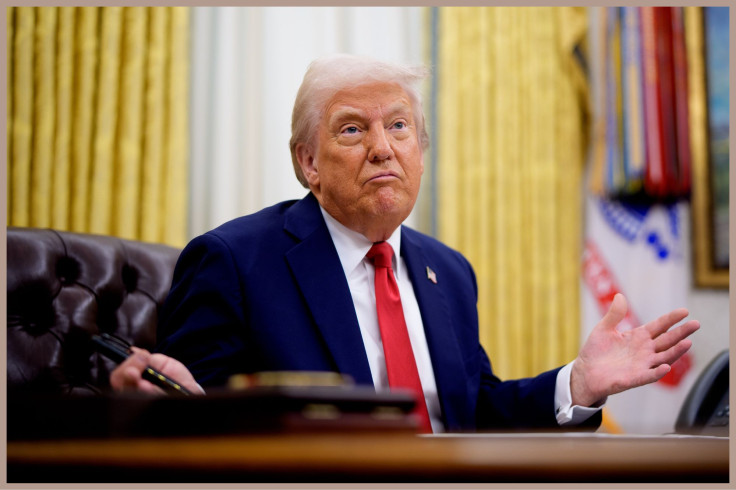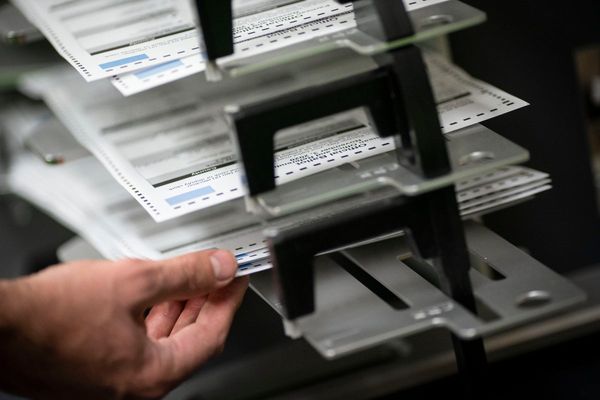
World markets crashed on Monday with Asia leading the rout, as US President Donald Trump held firm on his swingeing tariffs despite China retaliating and global recession warnings growing louder.
Hong Kong's Hang Seng plunged more than 13 percent, its biggest drop since the 1997 Asian financial crisis, while in Japan the Nikkei 225 index fell an eye-watering 7.8 percent.
Countries mostly have been scrambling to blunt the new US tariffs without retaliating, but Beijing is responding in kind, escalating the trade war between the two biggest economies.
Beijing's new 34-percent tariffs announced on Friday "are aimed at bringing the United States back onto the right track of the multilateral trade system," vice commerce minister Ling Ji said.
"The root cause of the tariff issue lies in the United States," Ling told representatives of US companies on Sunday, according to his ministry.
Trump on Sunday doubled down on his demand to slash deficits with trading partners, saying he would not cut any deals unless that was resolved.
"Sometimes you have to take medicine to fix something," Trump said on Sunday.
He told reporters aboard Air Force One that world leaders are "dying to make a deal".
Trillions of dollars have been wiped off stocks worldwide, and on Monday Asian equities took an even heavier hammering as investors moved to safer assets.
In Europe, Frankfurt's DAX sank a massive 10 percent with Paris diving more than six percent and London sliding nearly six percent.
US oil dropped below $60 a barrel for the first time since April 2021 on worries of a global recession.
"(This) is blunt-force economic warfare," said Stephen Innes at SPI Asset Management.
"The market's telling you in plain language: global demand is vanishing, and a global recession is on the cards and coming on fast," Innes said.
Benjamin Netanyahu, prime minister of Israel -- which has been hit with 17 percent tariffs, despite being one of Washington's closest allies -- was due Monday to become the first leader to meet Trump since last week's announcement.
Britain's Prime Minister Keir Starmer warned in a newspaper op-ed that "the world as we knew it has gone," saying the status quo would increasingly hinge on "deals and alliances."
Trump's staggered deadlines have left space for some countries to negotiate, even as he insisted he would stand firm and his administration warned against any retaliation.
"More than 50 countries have reached out to the president to begin a negotiation," Kevin Hassett, head of the White House National Economic Council, told ABC's This Week on Sunday, citing the US Trade Representative.
Vietnam, a manufacturing powerhouse that counted the US as its biggest export market in the first quarter, has already reached out and requested a delay of at least 45 days to thumping 46 percent tariffs imposed by Trump.
Treasury Secretary Scott Bessent also told NBC's Meet the Press that 50 countries had reached out.
But as for whether Trump will negotiate with them, "I think that's a decision for President Trump," Bessent said.
"At this moment he's created maximum leverage for himself... I think we're going to have to see what the countries offer, and whether it's believable," Bessent said.
Other countries have been "bad actors for a long time, and it's not the kind of thing you can negotiate away in days or weeks," he claimed.
Peter Navarro, Trump's tariff guru, has pushed back against the mounting nervousness and insisted to investors that "you can't lose money unless you sell," promising "the biggest boom in the stock market we've ever seen."
Russia has not been targeted by the latest raft of tariffs, and Hassett cited talks with Moscow over its invasion of Ukraine as the reason for their omission from the hit list.
On Wednesday a White House official suggested the reason for Russia's omission was because trade was negligible thanks to sanctions.
Trump has long insisted that countries around the world that sell products to the United States are in fact ripping Americans off, and he sees tariffs as a means to right that wrong.
"Some day people will realize that Tariffs, for the United States of America, are a very beautiful thing!" Trump wrote on Truth social Sunday.
But many economists have warned that tariffs are passed on to US consumers and that they could see price rises at home.
"I don't think that you're going to see a big effect on the consumer in the US," Hassett said.









